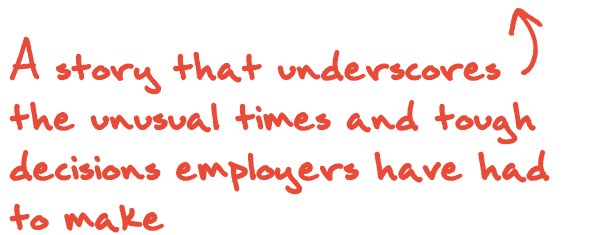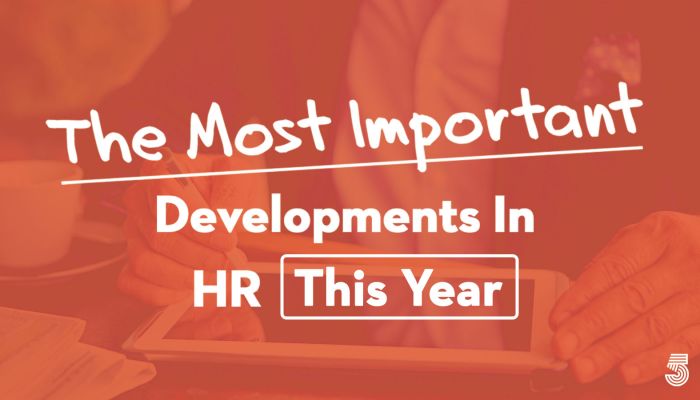When we were compiling this year-end HR roundup, we reviewed the roundup we did last year at this time. It contains the line: “Here’s hoping for a calm, uneventful 2021!” Well, friends, we didn’t get that. As 2020 drew to a close, just when we thought we saw light at the end of the pandemic tunnel, it turned out that light was an oncoming train called Delta. HR had another wild ride in 2021 due to this stubborn, mutating virus, and nearly everything about the workplace is changing because of it. And, just like in 2020, it’s all on HR’s plate.
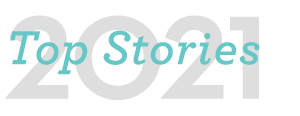 The biggest HR story of the year was and continues to be the Great Resignation, in which approximately 4 million people every month since April have quit their jobs. Reasons for the mass exodus vary, but most experts say it’s tied to what we’ve all been through during this ongoing pandemic. When the simple act of going to the grocery store can potentially kill you, you start to take stock of things. It makes you focus on what’s really important. And millions of people began to realize their jobs just weren’t. They were fed up and not willing to work at jobs they didn’t like for low pay, no career path ahead, no work/life balance, and paltry benefits. The aftermath has ushered in the toughest hiring market we’ve ever seen, with companies ramping up their pay and benefits and flexibility, paying for college tuition for employees, the whole nine yards. Silver lining in this situation: HR has had to cast its net wider, with the knowledge that employees can work from anywhere.
The biggest HR story of the year was and continues to be the Great Resignation, in which approximately 4 million people every month since April have quit their jobs. Reasons for the mass exodus vary, but most experts say it’s tied to what we’ve all been through during this ongoing pandemic. When the simple act of going to the grocery store can potentially kill you, you start to take stock of things. It makes you focus on what’s really important. And millions of people began to realize their jobs just weren’t. They were fed up and not willing to work at jobs they didn’t like for low pay, no career path ahead, no work/life balance, and paltry benefits. The aftermath has ushered in the toughest hiring market we’ve ever seen, with companies ramping up their pay and benefits and flexibility, paying for college tuition for employees, the whole nine yards. Silver lining in this situation: HR has had to cast its net wider, with the knowledge that employees can work from anywhere.
HR has to create back-to-the-office plans and then scuttle those plans as Delta marched through the country (and world), and companies have had to come to terms with the fact that many employees simply don’t want to come back to the office, period. HR has grappled with whether to mandate vaccines for employees, has been charged with continuing to nurture company culture when everyone’s working at home, and has had to magically craft budgets for next year that include sky-high salaries because employees will leave without that.
Another silver lining: We predict nobody is going to be fretting about how HR doesn’t have a seat at the table. HR is sitting at the head of the table now.
Here are some of the biggest HR stories we’ve covered in 2021.

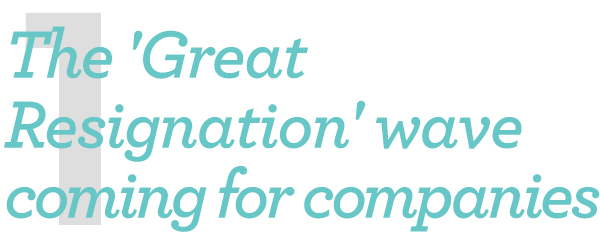
Companies that made it through the pandemic in one piece now have a major new problem: More than a quarter of their employees may leave. What’s happening: Workers have had more than a year to reconsider work-life balance or career paths, and as the world opens back up, many of them will give their two weeks’ notice and make those changes they’ve been dreaming about. “The great resignation” is what economists are dubbing it. Surveys show anywhere from 25% to upwards of 40% of workers are thinking about quitting their jobs. “I don’t envy the challenge that human resources faces right now,” says Anthony Klotz, an associate professor of management at Texas A&M University. Some are deciding they want to work fewer hours or with more flexibility to create more time for family or hobbies. Others are considering switching careers entirely. Some are quitting because their bosses won’t let them work from home post-pandemic. Others are leaving because they miss their offices, but their companies are now hybrid or all-remote. Axios

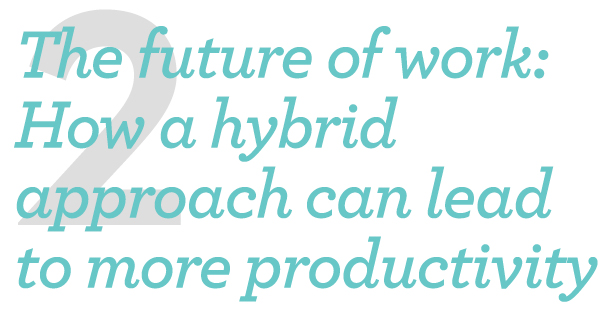
As the physical workplace transforms, so will traditional expectations around the way and the hours we work. The employee experience has amplified the need to evolve beyond face-time. As companies reinvent themselves and come to resemble a more hybrid model, not everyone will be expected to be working at the same time, whether online or in-person. They will instead work a schedule optimized to their own circumstances. The future of work is about humans and technology working in tandem towards a brighter, more productive future. The shift towards a hybrid model of work will positively impact companies in three ways: talent over geography, a dedicated focus on employee-valued programs, and a move towards environmentally conscious ways of working. Training
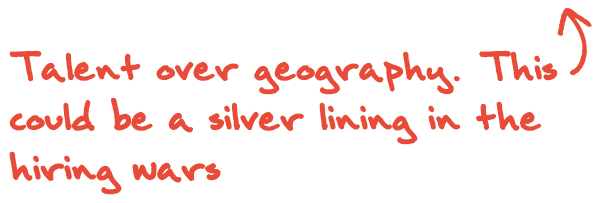
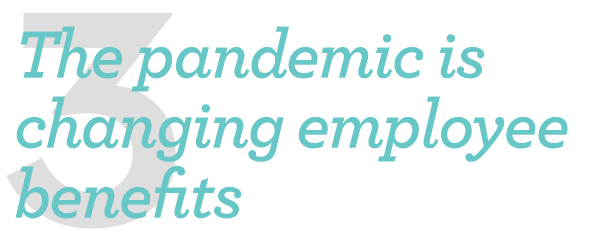
Care.com developed “The Future of Benefits” report, in which we asked 500 human resource leaders and C-suite decision-makers from across the U.S. what employee benefits they plan to keep, get rid of, add, and expand as a result of lessons learned during this crisis. Those we spoke to confirmed the toll the pandemic has had on their employees and their business: decreased productivity and retention, increased absenteeism, and declining mental health. That’s why almost all (98%) of the leaders we surveyed plan to newly offer or expand at least one employee benefit, prioritizing the ones workers deem most essential, like child and senior care benefits, flexibility around when and where work gets done, and expanded mental health support. In exchange for these essential benefits, 89% also said that they are deprioritizing at least one type of employee benefit because of COVID-19 — most frequently on-site child care, paid vacation days, commuter benefits, tuition reimbursement, and food or meals. HBR

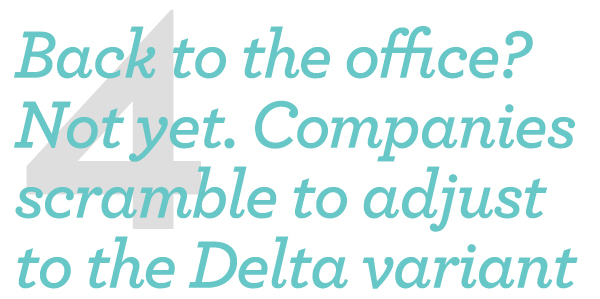
For a while there, it seemed like things were finally heading back to normal. Now, not so much. In the span of just a week, plans for a September return to the office have been pushed back. Mask mandates have made a comeback. On Friday, Walmart — the country’s largest private employer — reversed its policy and will once again require all workers to wear masks in areas most affected by the Delta variant of the coronavirus. Grocery chains Kroger and Publix are following suit. The New York Times indefinitely postponed its planned return to the office. The delta variant is much more transmissible, and health officials are concerned it may also make people sicker and can even be spread by fully vaccinated individuals. That means, almost a year and a half into the pandemic, companies are facing a difficult task of yet again recalibrating what steps are necessary to keep workers safe. NPR

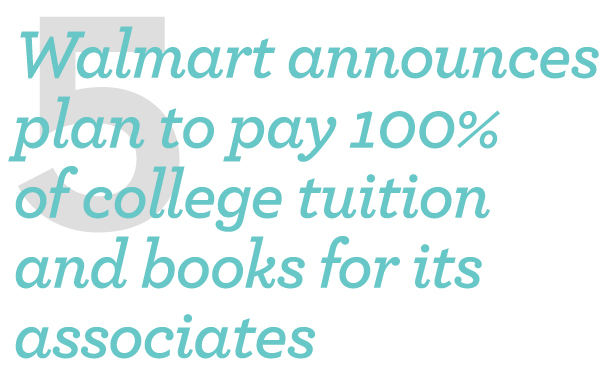
In an effort to help curb soaring student loan debts, Walmart announced Tuesday it will pay 100% of college tuition and book costs for its associates, starting Aug. 16. Walmart, the largest U.S. private employer, will drop its existing $1-per-day fee for associates who participate in its Live Better U education program. The company said it was inspired to adjust the terms of the program by changes in the economy and job market. With the new plan, Walmart plans to invest almost $1 billion over the next five years in career training and development for its employees. About 1.5 million part-time and full-time associates of Walmart and its Sam’s Club subsidiary will be eligible to learn new skills and earn college degrees, the company said. CNBC

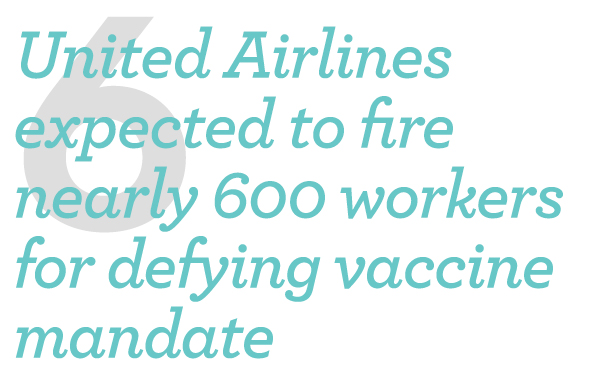
United Airlines has said nearly 600 U.S.-based employees are facing termination after failing to comply with the carrier’s vaccination policy. In early August, the company became the first U.S. airline to require Covid-19 vaccinations for all domestic employees, requiring proof of vaccination by Monday. The carrier said that on Tuesday, it would start the process of firing 593 employees who decided not to get vaccinated. “This was an incredibly difficult decision but keeping our team safe has always been our first priority,” chief executive Scott Kirby and president Brett Hart told employees in a memo. The workers can save their jobs if they get vaccinated before their formal termination meetings, the company officials said. The Guardian
